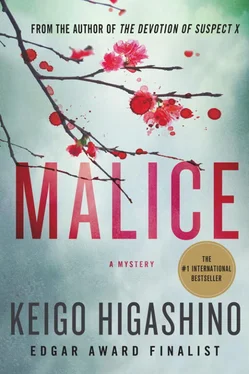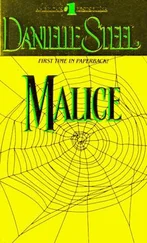“Twenty-seven pages? That is quite a lot.”
I went back to Hidaka’s house at eight o’clock, but even if he’d been alive and working right up to the moment I arrived, he’d have to have written nine pages an hour.
“So,” I said, “maybe he was lying?”
“What do you mean?”
“Maybe he’d already written ten or twelve pages when I saw him before. Maybe he just wanted to act like he hadn’t started yet—you know, maintaining appearances and all that.”
“That’s what the editor at the publisher suggested, too.”
“Thought so.” I nodded.
“But Hidaka had told Rie when she left the house that he wouldn’t make it to the hotel until rather late. Despite that, by eight o’clock, he already had twenty-seven pages written. Since each installment of The Gates of Ice was around thirty pages, he was almost finished. I understand writers are often late, but do they ever finish early?”
“I suppose. Writing isn’t a purely mechanical operation. You can spend hours at your desk without writing a single page. But when inspiration strikes, sometimes it’s hard to stop writing.”
“Was Mr. Hidaka that kind of writer?”
“He was. Which is to say, I think most authors are that kind of writer.”
“I see. I wouldn’t know anything about that.” Detective Kaga settled back into his seat.
“I’m not sure why you’re so hung up on the number of pages he’d finished before he was killed,” I said. “The basic facts are, when Rie left the house, his story wasn’t finished, but when the body was found, it was almost finished. All that means is that he did some amount of work in the time before he was killed. Right?”
“Maybe so.” Detective Kaga nodded, but he still looked unsatisfied.
Kaga, my former colleague, now a detective, seemed unable to let even the slightest detail go without thoroughly working it over. I suppose that was part of the job.
The waitress brought our food and talk ceased for a while.
“By the way,” I asked eventually, “what happened with the remains? You mentioned there was going to be an autopsy?”
“Yes, they did it today.” Detective Kaga looked over at Makimura. “You were there, right?”
“No, not me. If I was, I wouldn’t be eating this now.” He frowned as he stabbed his meat loaf with a fork.
“True enough.” Kaga smiled wryly. He turned back to me. “What about the autopsy?”
“I was just wondering if they had determined a time of death.”
“I haven’t read the reports myself, but I heard they had a pretty good estimate.”
“Are they sure it’s accurate?”
“It depends on what they based the estimate on. For example—” Kaga began, but then he shook his head. “No, I should save that for later.”
“Why?”
“I don’t want to ruin your shrimp Doria,” he said, indicating my plate.
“Indeed.” I nodded. “Let’s let that one rest for now, then.”
Detective Kaga nodded to indicate I’d made a wise choice.
While we ate, he said nothing about the case. Instead, he asked about the children’s books I was writing. He wanted to know what the current trends were. What were people reading? What did I think about the decline in reading overall?
I told him that the books aimed at children and teens that were selling were the ones that the Ministry of Education had promoted as “library recommendations,” and that the decline in reading among children was largely the fault of their parents.
“Parents these days don’t read books themselves, but they feel they should make their children read. Since they aren’t readers, however, they have no idea what to give their children. That’s why they cling to the recommendations from the Ministry of Education. Those books are all insufferably boring, and as a result, the kids learn to hate books. It’s a vicious cycle, with no end in sight.”
Both of the detectives listened to my story with the appearance of rapt attention while they ate. I secretly wondered whether they had the slightest interest at all.
Coffee came after the meal. I ordered myself a hot milk.
“You smoke, right?” Detective Kaga said, gesturing toward an ashtray.
“No, no thanks,” I said.
“What, you quit?”
“Yeah, about two years ago. Doctor’s orders. It was wrecking my stomach.”
“I see. Sorry, we should have sat in the nonsmoking section. I guess when I think of authors, I always imagine them smoking. Mr. Hidaka was a pretty heavy smoker, too, wasn’t he?”
“That’s right. Sometimes I thought he was fumigating his office to keep the bugs out.”
“How about last night when you found the body? Was there still smoke in the room?”
“I wonder… I was a little upset, as you can imagine.” I took a sip of my milk. “Now that you mention it, I think there was a little smoke.”
“I see.” Detective Kaga brought his cup to his lips. Setting it down, he slowly pulled out his notebook. “Actually, there was one other thing I wanted to check with you. About when you went to Hidaka’s house at eight o’clock?”
“Yes?”
“You said that since no one answered the intercom, and all the lights in the house were off, you called the hotel where Rie was staying, correct?”
“That’s right.”
“So, about those lights.” Detective Kaga looked straight at me. “Are you sure they were all off? All of them?”
“They were off, without a doubt.” I stared right back.
“But you can’t see the office window from the gate, can you? Did you go around to the back garden?”
“No, I didn’t. But you can tell from the gate whether the lights are on in the office or not.”
“Really? How’s that?” Detective Kaga asked.
“There’s a large cherry tree right in front of his office window. If the office lights are on, you can see it clearly.”
Detectives Kaga and Makimura nodded. “That makes sense.”
“Was that a big problem?”
“No, we’re just dotting our i’s here. If we don’t get every detail in the report, our boss gets mad at us.”
“Sounds tough.”
“It’s like any other job.” Kaga smiled in a way that reminded me of when he’d been a teacher.
“So how is the investigation going? Have you made any progress?” I looked at each of the detectives in turn, before settling on Detective Kaga.
“Well, we’re really just getting started,” he said softly, as if trying to suggest they weren’t supposed to talk about it.
“On the news,” I said, “they were saying it might have been a happenstance murder. That someone might have just broken in, found him there, and had to kill him.”
“Well, it’s not entirely out of the question,” Detective Kaga said.
“By which you mean it’s out of the question.”
“Pretty much.” Detective Kaga had one eye on his partner. “Personally, I feel it’s highly unlikely.”
“Why’s that?”
“Well, typically, someone breaking and entering with intent to steal will go in through the front door. That way, if they’re discovered, they might be able to talk their way out of it. They also tend to leave via the front door. But as you know, the front door to Mr. Hidaka’s house was locked.”
“And thieves don’t generally lock up behind themselves?”
“The dead bolt on the front door can only be locked from the inside when it’s closed, or from the outside with a key. The Hidaka house had three keys, and Rie had two of them. The third one was in Mr. Hidaka’s trouser pocket.”
“But some robbers still come in through the window, don’t they?”
“That’s true, but they tend to be the ones who’ve done the most prior planning. They case the place first, learning when the residents are out, making sure they can’t be seen from the street, and so on, before they act.”
Читать дальше







